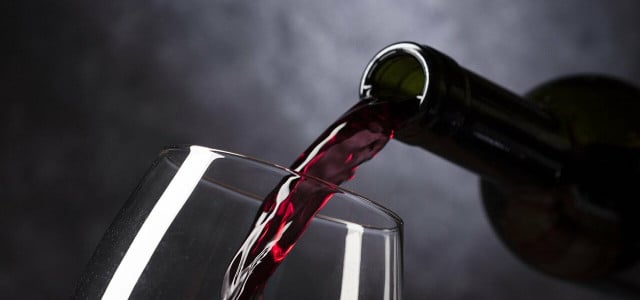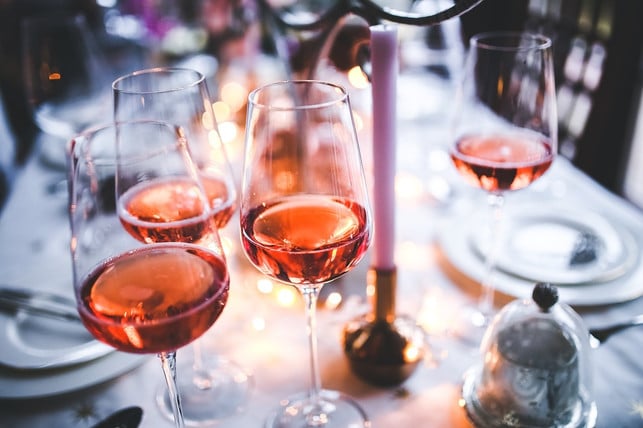
Hangxiety describes the feeling of anxiety, confusion and overwhelm that can occur the day after excessive alcohol consumption. Here you will find out how this feeling arises and how you can prevent it.
The term “hangxiety” is made up of the two English words “hangover” and “anxiety”. So he describes anxiety states that arise due to a hangover. We are much less informed about these psychological consequences of alcohol consumption, which can affect us long after we have drunk heavily, than about the short-term physical effects.
So among friends we might be more likely to talk about headaches, tiredness and exhaustion the day after a party. We tend to keep to ourselves the fact that we then sank into thought spirals for a long time, which caused a feeling of confusion and anxiety. In fact, hangxiety is not an isolated case, but occurs regularly after drinking alcohol due to processes in our brain.
How does hangxiety arise?
When we drink alcohol, we often quickly feel the calming and relaxing effect. This is because alcohol activates the so-called GABA receptors in the brain. They are responsible for anxiety relief, calming and dampening. The body wants to compensate for this excessive activation and reacts accordingly: stimulating substances are then released in the brain. Among other things, these mean that we can continue to walk and talk despite the depressing effect of alcohol.
However, the body’s counter-reaction wears off more slowly than the effects of alcohol. As a result, we may feel nervous or restless due to the stimulants that are still active the day after the party. This restlessness can also result in a feeling of fear.
Another problem: Regular alcohol consumption causes our body to quickly lose fluids and minerals and can therefore become dehydrated. This dehydration can, in turn, cause us to experience increased anxiety and depressive feelings.
Hangxiety: Shy people are particularly affected
Whether and to what extent we actually experience hangxiety on hangover day depends largely on our individual requirements. This includes, for example, how we generally deal with fears. But our personality type also plays a role: According to a study from 2018, shy people are more likely to suffer from hangxiety.
According to the researchers, this can have fatal consequences: Shy people may be more inclined to use alcohol to feel more confident and, for example, to speak louder and approach others more easily. The next day, however, the feeling of release turns into the opposite: the insecurity is increased due to the alcohol consumption.
This can encourage a vicious cycle. To combat this insecurity or anxiety, the next obvious choice is to reach for the bottle. It is therefore important to stop these mechanisms early and to accept yourself as a shy person. Mindfulness exercises (such as meditation and yoga) and a social environment that values you for who you are can help. Psychotherapy can also help you understand and accept yourself better.
In addition, the risk of hangxiety increases with age, experts told HuffPost. The older we get, the worse our body can cope with alcohol consumption. This is partly because as we age we lose muscle mass and our metabolism slows down. The body is then much less able to mitigate the effects of alcohol consumption.
How does hangxiety affect you?

(Photo: CC0 / Pixabay / kaboompics)
Hangxiety can trigger various negative feelings. A study from 2012 asked around 1,410 students from the Netherlands about typical symptoms of their hangover:
- 74 percent described a feeling of apathy in the sense of disinterest,
- 27.1 percent felt regret,
- 25.8 percent felt confused and irritated
- and 25.2 percent felt guilty.
- Almost 19 percent reported feelings of depression.
- Just over seven percent felt fear.
In such a situation, we often decide not to drink alcohol at all for a while. It becomes problematic when we repeatedly break this resolution and continue to get drunk regularly in order to cover up fears and insecurities. If you have problems with this, you can, for example, contact the nearest addiction counseling center in your area.
Avoid the fear of alcohol: This is what you can do
The easiest way to avoid hangxiety is obvious: if you don’t drink alcohol, you won’t have to deal with the consequences of a hangover. If you like to drink every now and then, you can follow a few tips to combat hangxiety and consume alcohol in a responsible and mindful way:
- Ask yourself briefly why you want to drink alcohol right now. For pleasure reasons or as part of a social get-together? Or because you are insecure and want to loosen up through alcohol? If the latter is the case, the likelihood of hangxiety the next morning is high. Therefore, only drink when you feel good and are surrounded by familiar people, for example.
-
Drink slowly. By the way, if you drink a glass of water after every alcoholic drink, you will not only prevent hangxiety, but also headaches and other physical effects.
- Have you drunk a little too much and the hangxiety is already there? Even then, the following applies: drink lots of water! Alcohol has a dehydrating effect and thus impairs the functioning of our brain. That’s why it’s important to replenish your water reserves the next day.
- Unfortunately, apart from water, there are few mechanisms to combat the fear of a hangover. However, in order to avoid worrying too much, it might help you to meet up with close friends or talk on the phone. A good book, a movie, or a fulfilling hobby can also distract you from negative feelings. And maybe it will help you to think that the feeling will soon pass and that there will be more space for positive thoughts again.
Read more on Techzle\.com:
- Study: Even a little alcohol shortens life expectancy
- 4 weeks without alcohol: This is what it does to your body
- What helps against a hangover? – Tips and home remedies for too much alcohol
** marked with ** or orange underlined Links to sources of supply are partly partner links: If you buy here, you are actively supporting Techzle\.com, because we then receive a small part of the sales proceeds. More info.